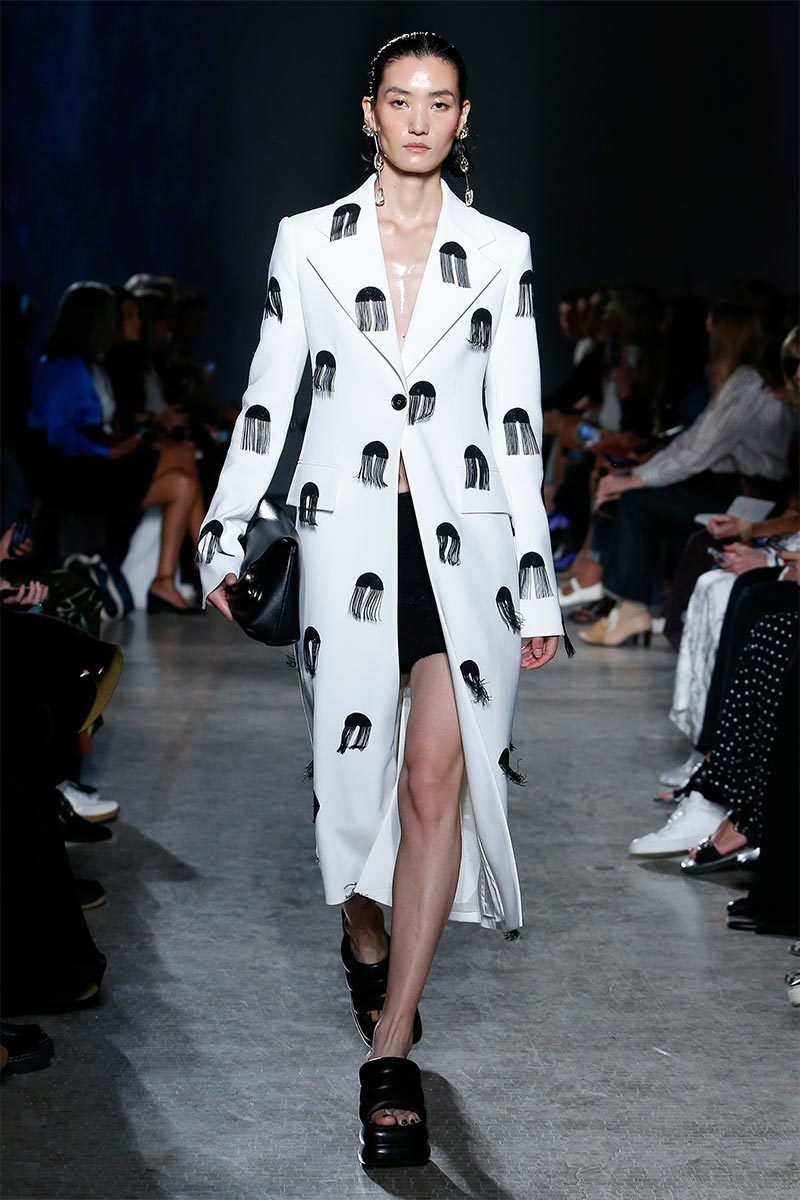There’s a 20th anniversary in the Proenza Schouler designers’ imminent future. New York fashion’s perennial It boys Jack McCollough and Lazaro Hernandez have been around the block a few times; these days they’re the establishment and a new generation of young talents are vying for the It boy title. How fast that happens!
Arca, the trans musician from Venezuela, opened their show in a loose black tank whose hem was pulled over one shoulder, revealing white silk fringe over her bare midriff and a bubble skirt. From there McCollough and Hernandez explored Latin flourishes, like flamenco ruffles peeking from the hems of generously cut bell bottoms, polka dots of varying sizes decorating twist-front dresses, and piped bell sleeves that extend past the knees. In the past, they’ve tended to cite travel adventures or their tight circle of girlfriends as influences. But after the show, Hernandez wanted to talk about his roots. “I leaned into my Latin identity, I’m Cuban,” he said. That tight circle of friends is going to like these pieces a lot.
The models wore their hair slicked back wet and their skin was dewy. They looked as if they just stepped off a dance floor or climbed out of the sea. With videos of waterfalls projected onto the marble walls of the venue and an ASMR triggering soundtrack to match, the collection felt closer to nature than last season’s. Crochet separates, nipple-freeing sheer lace shirts and dresses, and compact knit pieces that seemed to take their cues from swimwear looked like the work of designers who’d like to hold on to a summer feeling for as long as they can—a relatable instinct on this busy September Friday.
“We’re just talking about the idea of energy, of joy, of sensuality, these things that sometimes we feel are lost in our lives, to be honest, and we’re trying to find a way to get them back,” McCollough said. Twenty years is no small milestone. How do you sustain energy and joy when you’ve been at something that long? McCollough and Hernandez tapped into it this season by working with a community of weavers in Bolivia. “We did it all via email and conversations over the phone,” Hernandez related. “We were able to make four pieces with them and employ them for six months. They were so happy.” But you know who sounded really happy? He did.

1 / 10

2 / 10

3 / 10

4 / 10

5 / 10

6 / 10

7 / 10

8 / 10

9 / 10






